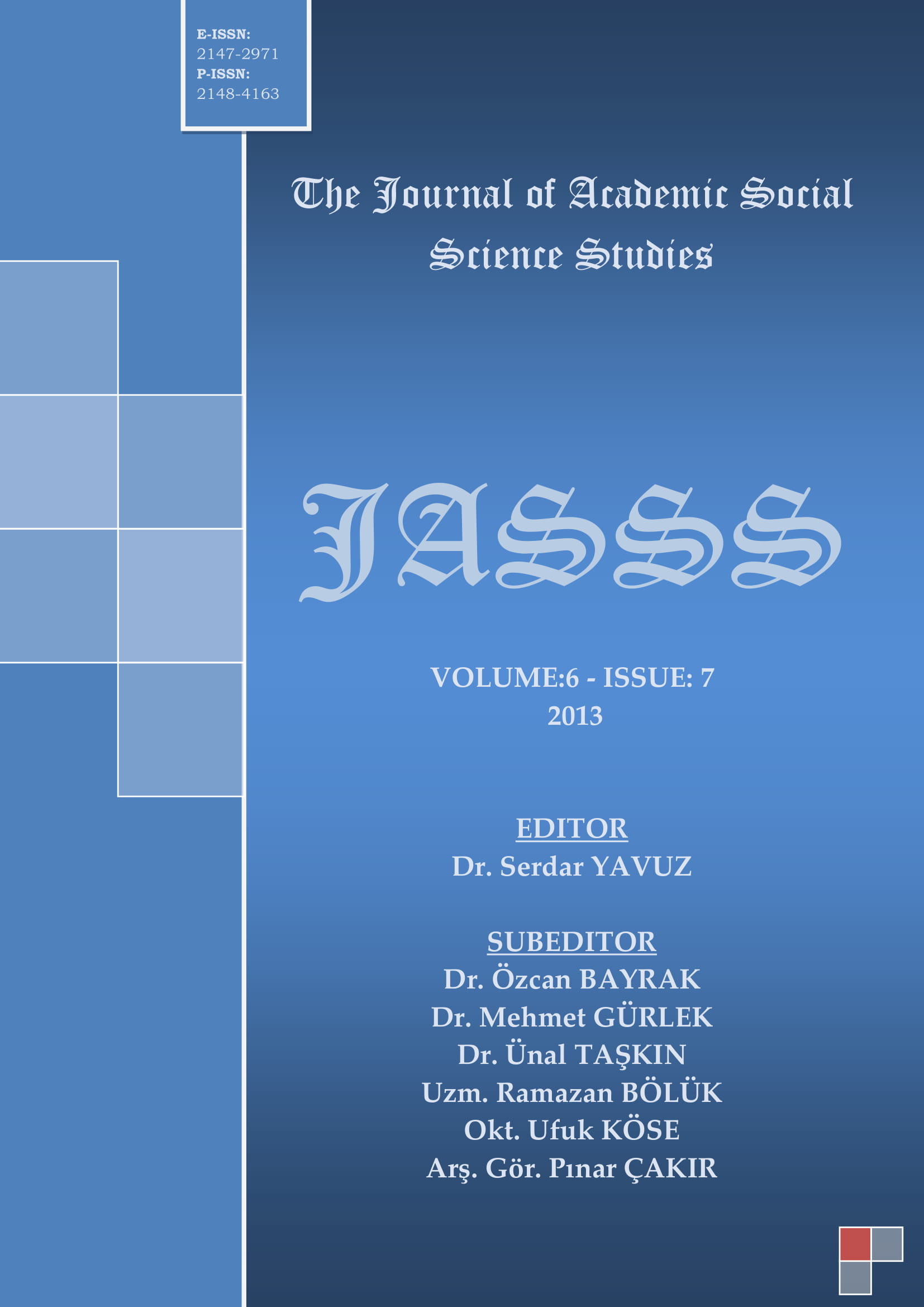Author :
Abstract
Bu araştırmanın amacı, okulöncesi eğitiminin geliştirilmesi bağlamında paydaşların bilgi, tutum ve uygulamalarını belirleyerek, karar vericilere eğitim talebinin artırılması ve arzın yapılandırılması hususunda politika geliştirme ve strateji oluşturma çalışmaları için girdi sağlamaktır. Öğretmenler, muhtar ve imamlar, milli eğitim, belediyeler ve yazılı ve görsel medya temsilcileri paydaşlar olarak belirlenmiştir. Bilgi, tutum ve uygulama (BDU) araştırması, katılımcıların bir konuyu nasıl algıladıkları, ne bildikleri, konuya karşı tavırları ve ne yaptıklarını belirleme amacı ile yapılan bir tarama çalışmasıdır. BDU tarama araştırma modeli, netleştirmek için sorgulama kullandığından direk gözlem yapılamadığı durumlarda, sıkça tercih edilen bir metottur. Bu yöntem görüşme yapılanların tamamen analiz edilme ihtiyaçlarına izin verir. Bu sebeplerden ötürü, BDU tarama modeli, bu araştırmanın en iyi metodu olarak seçilmiştir. Bu araştırma, muhtarlar, imamlar, okul öncesi eğitim öğretmenleri, milli eğitim bakanlığı temsilcileri ve medya temsilcileri ile yüz yüze yapılan görüşmelerle bir araya getirilmiş, nitel ve nicel verilerden oluşmaktadır. Araştırma ile ilgili veri analizleri, tanımlayıcı kümeleri gözlemlemek için yürütülmüştür. Nicel verileri analiz ederken, SPSS veri analiz paket programı kullanılmıştır. İçerik analizi, nitel veri ve aranılan araştırma sorularının cevapları için yapılmıştır. Yüz yüze görüşmeler kayıt altına alınmış ve sık sık tekrarlanan terim ve kelimeler belirlenmiştir. Verileri kodlarken bu kavramlar anahtar sözcükler olarak kullanılmıştır. Kodlama tamamlandıktan sonra, kavramlar belirlenmiş ve ortak konular altında gruplandırılmıştır. Bu aşamada, nitel araştırmalar için kullanılan çeşitleme (triangulation) yöntemi ile güvenilirliği sağlanmıştır. Araştırma bulguları okul öncesi eğitim problemlerinin doğası gereği çelişkili olduğunu göstermektedir. Bu problemlere yaklaşırken, çözümler, hangi aracın seçileceği ve hangi metodun takip edileceği belirlenirken çoklu kaynakların değerlendirmesini içermelidir. Aksi halde önerilen çözümler beklenmedik sonuçlar ve yeni problemlere sebep olabilecek istenmeyen yanlış anlaşılmalar doğurabilir. Ebeveynler ve diğer katılımcılar çocukların okul öncesi sorunlarına karşı çok pozitif davranış içerisindedirler. Arzın talebi karşıladığı durumda, 5 yaş çocukların okula devamlarının %50 artacağı düşünülmektedir. Fakat bazı belli problemlerin, bu eğitime en çok ihtiyacı olanlar için okul öncesi eğitim sağlanması
Keywords
Abstract
The aim of this study was determine shareholders’ knowledge, attitude and practices towards the development of pre-school education for help to decision makers develop policies and strategies to heighten the general public’s awareness of the need for education, as well as better provide education opportunities. Teachers, muhtars and imams, national education, municipality and representatives of written/visual press were determined as shareholders. Knowledge, Attitude and Practice (KAP) research is the study of screening with the aim of determining how participants perceive an issue, what they know about it, what their attitudes towards it are and what they do about it. The KAP screening research pattern is a frequently preferred method, as it uses questioning to clarify issues when direct observations cannot be made. This method allows the needs of those who are interviewed to be comprehensively analysed. Because of these reasons, the KAP screening pattern was chosen as the best method for this survey. The research consists of qualitative and quantitative data which was gathered from the face-to-face interviews held with muhtars, imams, teachers for pre-school education, representatives from the Ministry of National Education and representatives from the media. Descriptive data analyses were carried out to observe descriptive clusters. While analysing quantitative data, the SPSS data analysis package program was used. Content analysis was made for the qualitative data and answers to research questions were sought. Face-to-face discussions were transcribed and frequently repeated terms and words were determined. While coding the data, these concepts were used as key words. After the completion of coding, concepts were determined and grouped under a common theme. During this stage, the method of triangulation, which is used in qualitative researches, was very useful and ensured reliability. Research findings indicate that problems in pre-school education are paradoxical in nature. While approaching these problems, solutions should include an evaluation of multiple sources when determining which tools to choose and which methods to follow. Otherwise, suggested solutions might yield unexpected results as well as unintended misunderstandings, which might also cause new problems. Families and other participants have very positive attitudes towards the issue of children’s pre-school education. It is thought that if supply met the current demand, that the percenta





